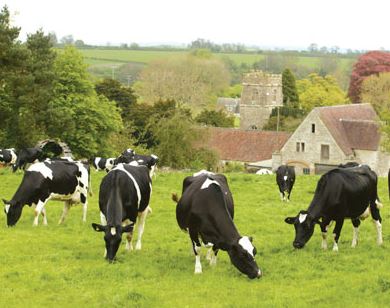Average UK farm profitability could decline by more than half after Brexit, according to a recent report by the Agriculture & Horticulture Development Board (AHDB).
In what the Board calls “the worst case scenario” as a result of policy and performance challenges that come from Brexit, average farm profits could be cut from £38,000 to £15,000 a year.
The analysis, which was launched at AHDB’s Grain Market Outlook Conference project the effects of several trading arrangements. It also assesses labour availability and farm support measures.
The trading arrangements range from a liberal approach to a ‘business as usual’ approach with current levels of support. In the liberal approach, there is tariff-free access to the British market and minimal support. At one extreme, there is a cliff-edge Brexit scenario where everybody must revert to WTO regulations. In this cliff-edge scenario, support payments are extremely low.
“Under the three scenarios outlined in the report, changes in the UK’s trade relationships will impact farmers’ bottom line when the UK leaves the single market, whether or not a free trade agreement is negotiated with the EU,” the Board said.
The UK is scheduled to leave the European Union in March 2019.
Although negotiations with the bloc started earlier this year, it remains unclear what sort of trading relationship Britain will have with the EU. In fact, negotiations over future trade haven’t even begun yet.
Agricultural and horticultural industries in the UK receive subsidies under the EU’s Common Agricultural Policy (CAP). The CAP gives UK farmers £3.1bn a year.
Farm sectors that rely on CAP are expected to experience a “dramatic immediate impact” because of Brexit.
Phil Bicknell, AHDB Market Intelligence Director, said:
This analysis underlines the fact that performance matters.
As individual farms, we know that we can’t determine policy but we can recognise that performance is key to preparing for the challenges ahead.
Mr Bicknell added:
Buzzwords like competitiveness, resilience, productivity are not new to agriculture but Brexit brings renewed focus on farm performance.
Do nothing and businesses that are currently profitable run the risk of heading into the red. There is plenty that individual businesses can do now to get fit for the future.

